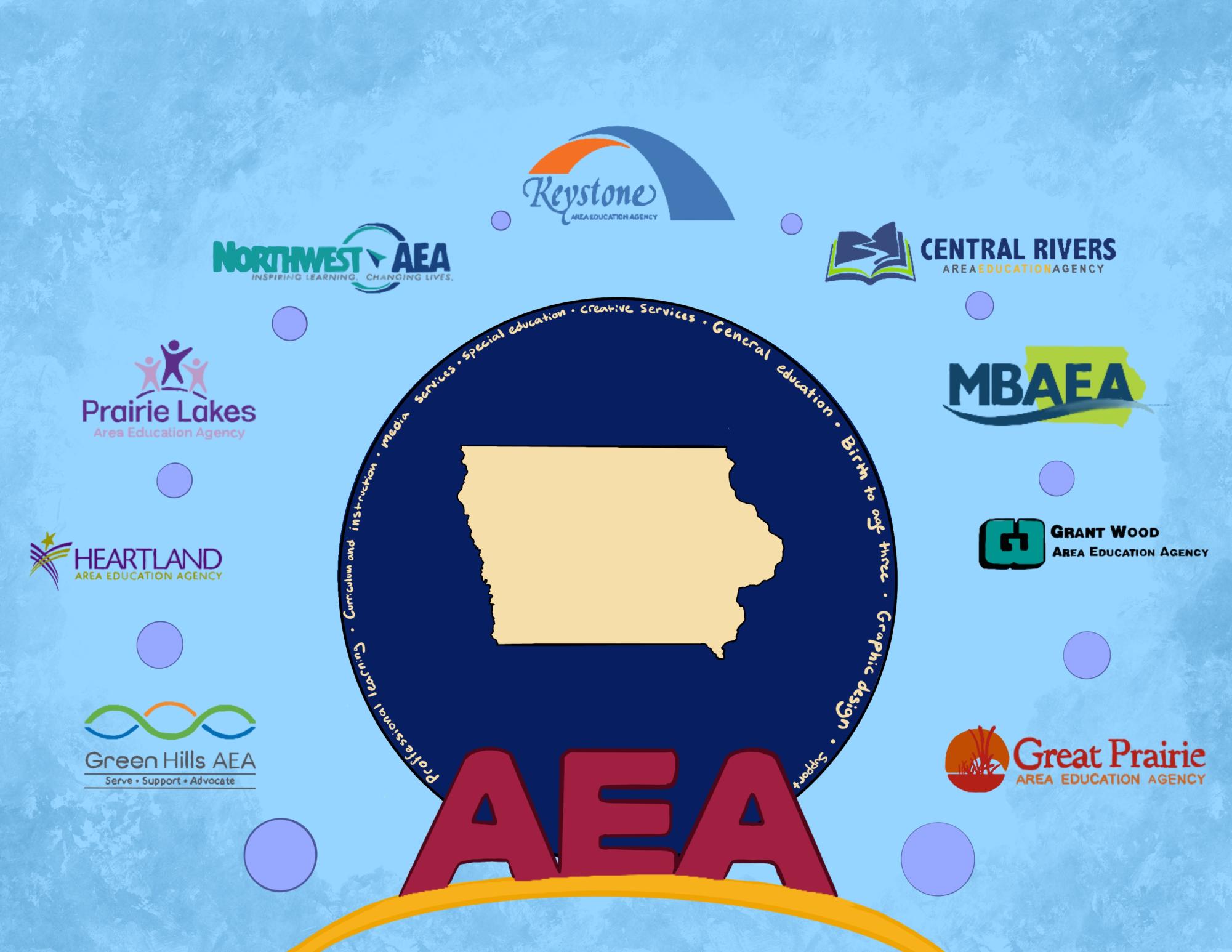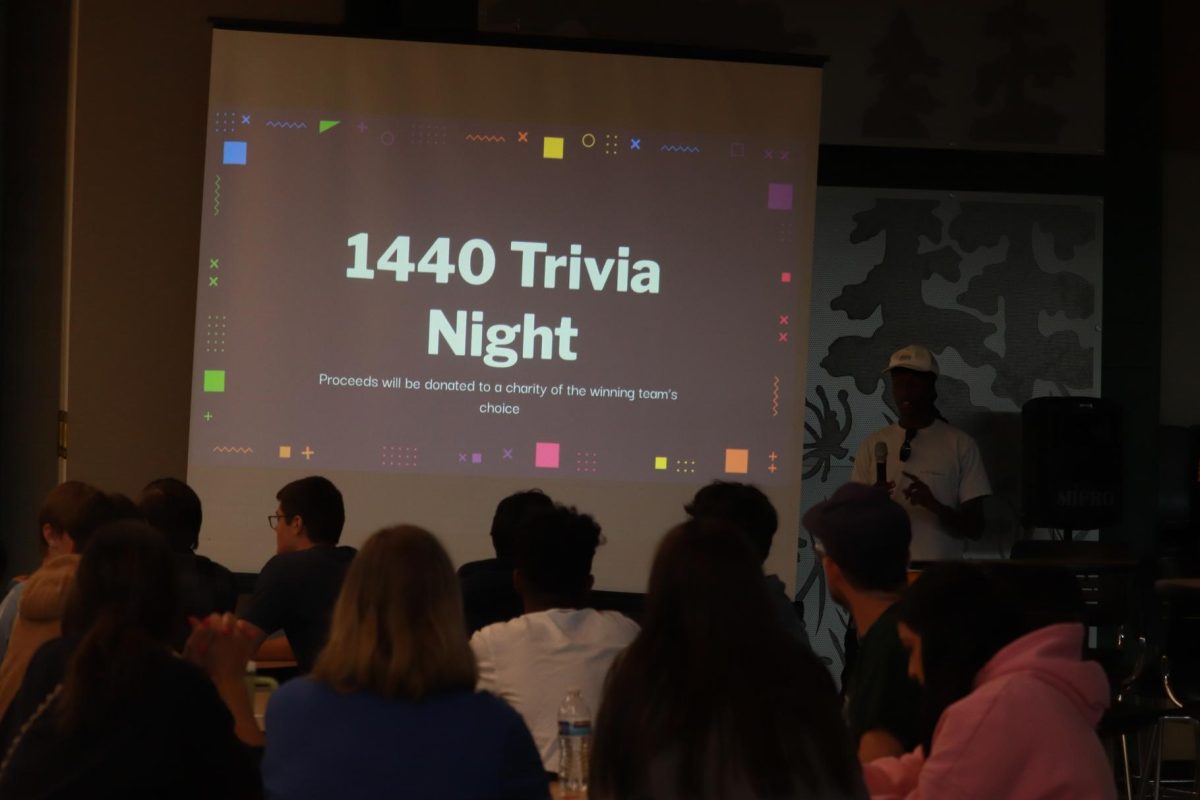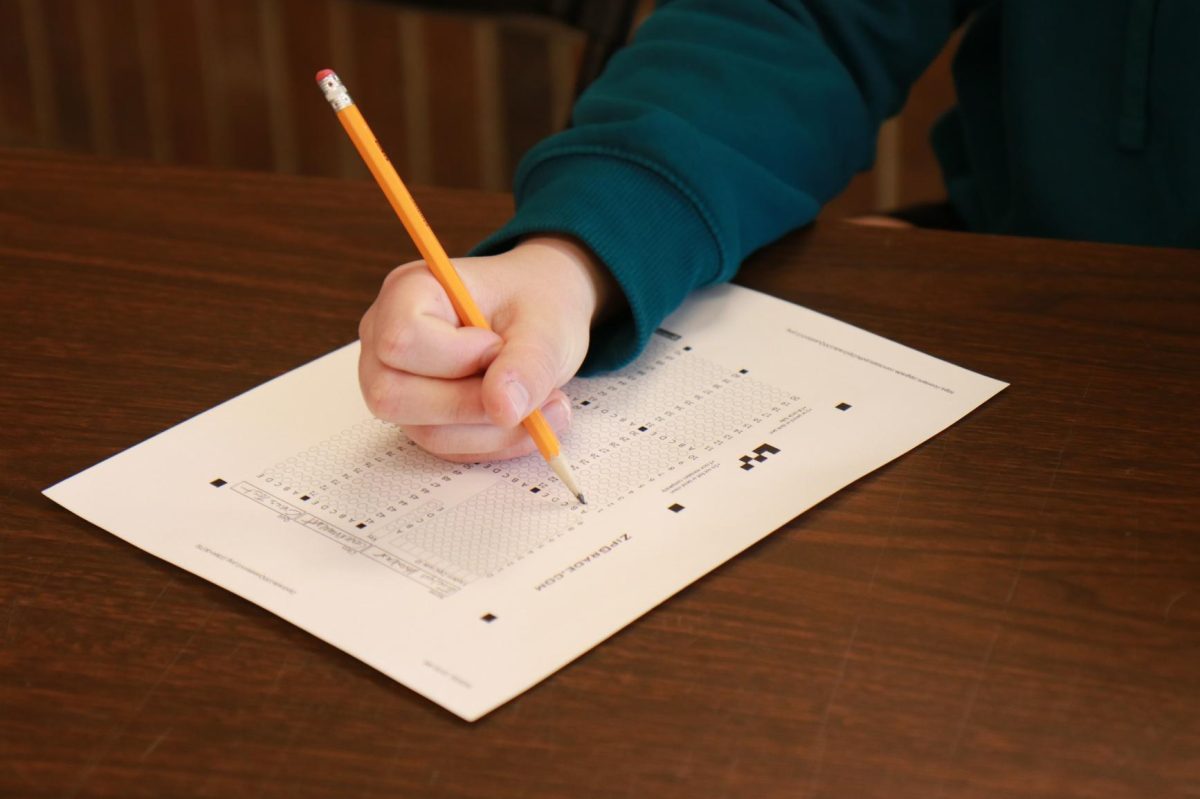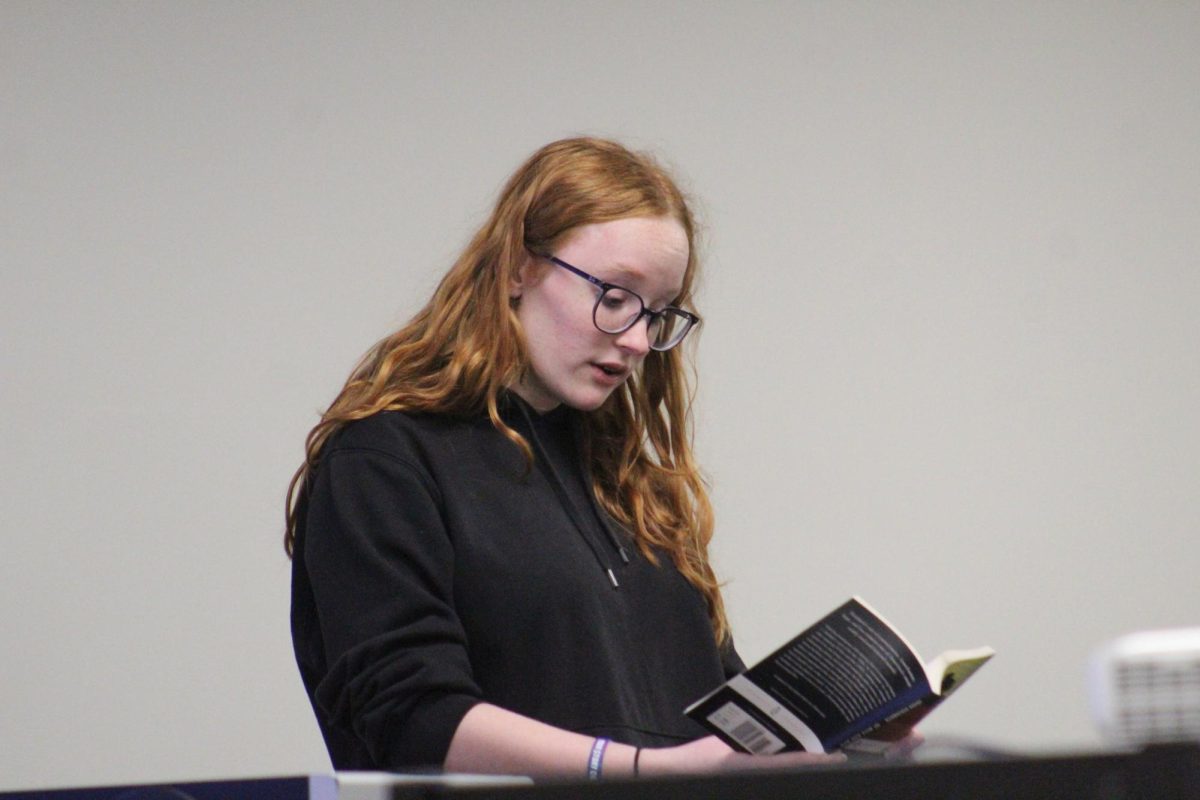
The future of Iowa’s Area Education Agencies
In 1974, Area Education Agencies were established in Iowa so districts had equal access to services at a time when they varied widely across the state. AEAs currently provide a variety of services, ranging from special education to professional development.
The funding of these agencies was recently changed by the passage of HF 2612. The bill covers a wide range of education changes including AEA funding changes for future school years, raises starting teacher pay to a minimum of $50,000 in two years and a 2.5% growth rate for cost per pupil for the next school year. Because this legislation is recent, its effects remain unknown, but AEA employees and teachers alike expect their work to be affected.
The services provided by AEAs can be divided into three main categories: educational services, media and special education. These can be school-community planning, professional development, technology support, curriculum, instruction and assessment. Their services can come in the forms of physical equipment, online resources and direct support.
Iowa has nine AEAs, each responsible for the districts within their jurisdiction. The Iowa City Community School District is one of the 32 districts Grant Wood AEA serves.
Along with working directly with teachers and administrators, AEAs hire staff specializing in certain areas, such as psychology or speech-language pathology, to add another layer of expertise to districts.
“The majority of AEA staff work directly in school districts. These staff members can do everything from co-teaching to directly supporting students,” wrote Jake Putnam, the Communications Coordinator for GWAEA, in an email. “Staff members collaborate with teachers and administrators in collecting data, improving instructional practices, supporting students with a wide range of learning needs, and even support districts in crisis.”
Lydia Petoskey, a A special education teacher licensed to serve students with less-complex needsstrat one special education teacher at West, regularly uses AEA services in her work. One of the things AEAs do for special education is child find, the goal of which is to locate students with special needs. After the students are recognized, the AEAs help support them until they are 21.
“I think it’s important that students who have special needs are identified so that they can get the services that they are entitled to under the law. And I think that supporting students until they’re 21 for a variety of services, helps them become the best possible version of themselves,” Petoskey said.
Restructuring AEAs was one of the priorities Gov. Kim Reynolds outlined in her January Condition of the State address.
“AEAs have grown well beyond their core mission of helping students with disabilities, creating top-heavy organizations with high administrative expenses,” Reynolds said. She continued to say that under her legislation, AEAs will solely focus on students with disabilities.
Her vision became law on March 27 in the form of House File 2612, which changes AEA funding starting next year. Next year, 10% of special education funding currently going to AEAs will go to districts, along with 40% of the funding for general education and media services.
Since the legislation is new, the extent of its effects is still unknown. Despite this, both AEA staff and teachers have their predictions for what could happen.
One of the effects that is already being seen is the loss of staff at AEAs. GWAEA currently employs about 500 staff members that have a variety of expertise. After the legislation, GWAEA has seen more staff that usual leave the agency. As of May 8, 17% of GWEA staff members have resigned or retired. The agency said they expect the number to rise.
This phenomenon isn’t happening just at GWAEA. According to the Des Moines Register, at least 478 AEA employees have resigned or retired and another 42 have been laid off between the start of the year and mid-May.
The bill not only affects the AEAs and their employees but also the people in the districts they serve.
Matt Degner, the ICCSD’s superintendent, wrote in an email, “[HF 2612] could ultimately lead to higher costs for services for districts and the AEAs. The AEAs have been able to create economies of scale through the current model that will be more difficult to replicate now.”
Even though special education keeps more funds than general education, special education students will likely feel the effects of this legislation. “I fear it’s going to get really bad for a lot of kids, and parents don’t necessarily know what the schools can and should be providing and the AEA does a good job of educating them. So without the AEA advocating to the parents are worried that the districts are going to take that money and absorb it and not use it to meet the needs of children,” Petoskey said.
Now that the legislation has been passed, AEAs and districts must make plans for the future to ensure students still get the support they need. They are currently working with the districts to get input, feedback and district commitments for services to be able to make plans.
GWAEA is looking into how other states function under a service-for-a-fee model used by other states which creates some problems.
“The service-for-a-fee system creates unique staffing challenges year over year, with no certainty what funding will be available. These specifics are being discussed and planned for diligently by our AEA leaders and the Iowa Department of Education,” Putnam wrote.
Reynolds proposed the legislation, saying that it would make special education better, but Petosky disagreed. “The district has money right now that’s supposed to be allotted for special education and I don’t see it benefiting my students,” she said. “Every single department in the school has a budget except for special education. Every single department has an office except for special education. There are a lot of inequities. So I don’t think that taking more things away from special education is going to help anyone.”
-
 FeatureWSS 2025 People of the Year
FeatureWSS 2025 People of the Year -
 FeatureGone digital: the return of digital cameras
FeatureGone digital: the return of digital cameras -
 FeatureMiles for mental health
FeatureMiles for mental health -
 FeatureService and sacrifice
FeatureService and sacrifice -
 FeatureStitching sustainably
FeatureStitching sustainably -
 FeatureSenior futures
FeatureSenior futures -
 FeatureBrad Stiles: championship caliber coaching
FeatureBrad Stiles: championship caliber coaching -
 FeatureBack in time
FeatureBack in time -
 FeatureDriven, dangerous and distracted
FeatureDriven, dangerous and distracted -
 FeatureClass of 2025 senior columns
FeatureClass of 2025 senior columns -
 NewsWATER wins: 1440 hosts annual trivia night
NewsWATER wins: 1440 hosts annual trivia night -
 NewsThe truth behind Trump's tariffs
NewsThe truth behind Trump's tariffs -
 NewsMay news briefs
NewsMay news briefs -
 NewsWest Jazz bands perform at Friday Night Concert Series
NewsWest Jazz bands perform at Friday Night Concert Series -
 NewsWest High holds senior recognition awards night
NewsWest High holds senior recognition awards night -
 NewsIowa bill would require high school students to pass a citizenship test to graduate
NewsIowa bill would require high school students to pass a citizenship test to graduate -
 NewsTheatre West hosts annual Drama Awards, announces shows for next year
NewsTheatre West hosts annual Drama Awards, announces shows for next year -
 NewsBanned Book Club hosts first open mic at Coralville Public Library
NewsBanned Book Club hosts first open mic at Coralville Public Library -
 NewsWest High math team secures first place at national competition
NewsWest High math team secures first place at national competition -
 NewsSpring season ends for the West High Esports team
NewsSpring season ends for the West High Esports team

Your donation will support the student journalists of West High School. Your contribution will allow us to purchase Scholarship Yearbooks, newsroom equipment and cover our annual website hosting costs.

